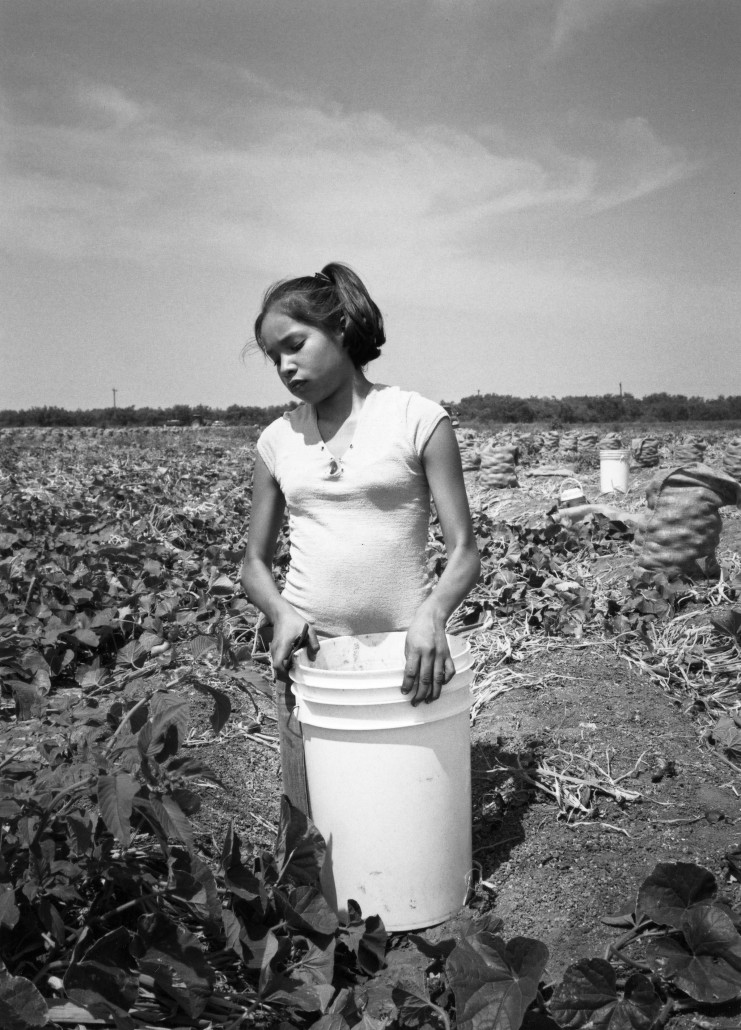Child Labor Coalition welcomes the Senate Introduction of the Children’s Act for Responsible Employment and Farm Safety Act of 2024 (CARE Act)
Press Release
March 25, 2024
Media contact: National Consumers League – Reid Maki, reidm@nclnet.org, (202) 207-2820
Washington, DC – With the beginning of Farmworker Awareness Week today, the Child Labor Coalition (CLC), representing 37 groups engaged in the fight against domestic and global child labor, applauds Senator Ben Ray Luján (D-NM) and for introducing the Children’s Act for Responsible Employment and Farm Safety (CARE). The legislation, introduced on March 21, would close long-standing loopholes that permit children in agriculture to work for wages when they are only 12 and 13—younger than other teens can work. The bill would also ban jobs on farms labeled “hazardous” by the U.S. Department of Labor if workers are under the age of 18. Current U.S. law allows children to perform hazardous work at age 16.
“With their whole future ahead of them, our country must do better protecting children working in the agriculture industry,” said Senator Luján. “Across the country, thousands of children are working under hazardous conditions in the agriculture sector, risking their health and education. I’m introducing the CARE Act to raise the floor and bring our agricultural labor lines in with other industries to better protect children and improve the working conditions they operate in.”
“It’s amazing to us that discriminatory loopholes, which allow very young kids to work 70- and 80-hours a week, performing back-breaking labor on farms, have been allowed to exist since the 1930s,” said Reid Maki, Director of Child Labor Advocacy for the National Consumers League and the Child Labor Coalition. “The impact of the exemptions on farmworker children educationally is harmful and their health is at significant risk on farms.”
“We’re grateful for Senator Luján’s tremendous leadership on this issue.” said the CLC’s Chair Sally Greenberg, also the CEO of the National Consumers League. “It’s been 22 years since we’ve had a Senate bill that would fix our weak child labor laws that discriminate against farmworker children and leave them unprotected from farm dangers. This day was long overdue. We applaud Senator Lujan for taking action to protect child farmworkers.
“Growing up as a migrant farmworker child, I saw first-hand the detrimental consequences of our inequitable child labor laws,” says Norma Flores López, Chair of the Child Labor Coalition’s Domestic Issues Committee. “Working 70 hours a week, performing back-breaking work did not prepare me for a career in agriculture. Rather, it robbed me of my childhood and my health. Working children must be protected from dangerous work that is not age-appropriate, and the CARE Act provides this critical change in our labor laws.”
In the House, Rep. Raul Ruiz introduced a version of the CARE Act, H.R. 4046, earlier in the congressional session; it has 45 cosponsors.
The Senate bill, which does not have a number yet, has been endorsed by 46 organizations, including the AFL-CIO, the Economic Policy Institute, the UFW, Farmworker Justice, the National Education Association, the American Federation of Teachers, and the National Farm Medicine Center. The House version has been endorsed by 200 national, regional, and state-based organizations, noted Maki.
“The US will not fix the country’s child labor problem until Congress provides children working in agriculture with the same protections as all other working children. Congress should pass this bill without delay to protect children from dangerous work that harms their health and development,” said Jo Becker, children’s rights advocacy director, Human Rights Watch.
In addition to raising the minimum age at which children could work in agriculture, CARE would significantly increase minimum fines for employers who violate agricultural child labor laws; the bill would also establish minimum fines for the first time. The legislation would also codify a ban on children applying pesticides and increase data collection and analysis of child farmworker injuries.
The children of farm owners working on their parents’ farms would not be covered by the protections of the CARE Act—this aligns with the wishes of organized farmer groups.


![In the U.S., many teens who work in tobacco fields wear plastic garbage bags to try to avoid nicotine poisoning. [Photo courtesy Human Rights Watch]](https://stopchildlabor.org/wp-content/uploads/2022/08/1_201512_crd_us_tobacco_photo_2-180x180.jpg)


